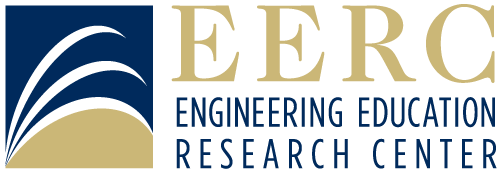Research
Matthew Barry
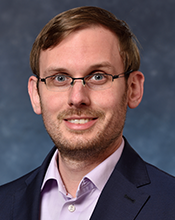
Department: Mechanical and Materials Science
Email: matthew.michael.barry@pitt.edu
Phone: 412-624-9031
Office: 204 Benedum Hall
Engineering Education Focus: Interests include studying the effects of communities of practice on undergraduate engineering students, and the degree of which hands-on engineering and design fortifies learning.
Recent Engineering Education Papers:
- A New Approach to Teaching Statics Using a Makerspace, Lee A. Dosse, Matthew M. Barry, Karthika Ramanathan, Renee M. Clark. 2019 IEEE Frontiers in Education Conference, Cincinnati, OH, USA, October 16-19.
Active Grants and Recent Achievement Awards:
- Visiting Committee Excellence in Education Award, awarded by the Mechanical Engineering and Material Science Visiting Committee, University of Pittsburgh, 2018
Mary Besterfield-Sacre
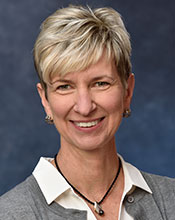
Department: Staff/Administrator
Email: mbsacre@pitt.edu
Phone: 412-624-9836
Office: 148 Benedum Hall
Engineering Education Focus: Mary's principal research is in engineering education assessment, which has been funded by the NSF, Department of Education, Sloan Foundation, Engineering Information Foundation, and VentureWell. Mary's current research focuses on three distinct but highly correlated areas – innovative design and entrepreneurship, engineering modeling, and global competency in engineering.
Recent Engineering Education Papers:
- Streiner, S.C., and M. Besterfield-Sacre, “Development of the Global Engineering Programming Model: A Participatory, Mixed-Methods Approach,” Journal of International Engineering Education. 1, no1 (2018) pp. 1-34. https://doi.org/10.23860/jiee.2018.01.01.03 (2) 3.
- Clark, R.M., A. Kaw, Y. Lou, A. Scott, and M. Besterfield-Sacre. “Evaluating Blended and Flipped Instruction in Numerical Methods at Multiple Engineering Schools,” International Journal for the Scholarship of Teaching and Learning, 12, no 1 (2018) pp. 1-16. DOI: 10.20429/ijsotl.2018.120111. (3) 6.
- Besterfield-Sacre, M.E., S. Zappe, A. Shartrand, and K. Hochstedt (2016). “Faculty and Student Perceptions of the Content of Entrepreneurship Courses in Engineering Education,” Advances in Engineering Education, 5, no1 (2016): 1-27.
Active Grants and Recent Achievement Awards:
- Collaborative Research: INCLUDES – Toward an Alliance to Prepare a National Faculty for Broadening Success of Underrepresented 2-Year and 4-Year STEM Students NSF-ICER 1649105
- Innovation Through Propagation: Determining an Engineering Education Research Agenda, NSF/ DRL-1451263
- Collaborative Research: Assessing the Spectrum of International Undergraduate Engineering Educational Experiences, NSF/EEC–1160404
Melissa Bilec

Department: Civil & Environmental Engineering
Email: mbilec@pitt.edu
Phone: 412-648-8075
Office: 153 Benedum Hall
Engineering Education Focus: Integrating sustainability into the engineering curriculum through experiential and project based learning. Examining the connections between sustainability, diversity, inclusion, and equity.
Recent Engineering Education Papers:
- Burke, R.D., Dancz, C.L.A., Ketchman, K.J., Bilec, M.M., Boyer, T.H., Davidson, C., Landis, A.E., Parrish, K.P. (2018). “Faculty Perspectives on Sustainability Integration on Undergraduate Engineering Curriculum.” ASCE Journal of Professional Issues in Engineering Education and Practice, 144(3), 04018004. https://doi.org/10.1061/(ASCE)EI.1943-5541.0000373.
- Danzc, C.L.A., Bilec, M.M., Landis, A.E. (2018). “Active Experiential Sustainable Engineering Module for Engineering Education.” Journal of Professional Issues in Engineering Education and Practice, 144(1): 04017011. https://doi.org/10.1061/(ASCE)EI.1943-5541.0000345.
- Dancz, C.L.A., Ketchman, K.J., Burke, R.D., Hottle, T.A., Bilec, M.M., Parrish, K., Landis, A.E. (2017) “Utilizing Civil Engineering Senior Design Capstone Projects to Evaluate Students’ Sustainability Education Across Engineering Curriculum.” Advances in Engineering Education, 6(2).
Active Grants and Recent Achievement Awards:
- Received Senior Vice Chancellor for Engagement’s Partnerships of Distinction award
Karen Bursic
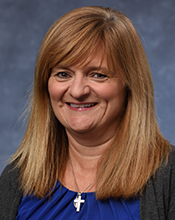
Department: Industrial Engineering
Email: kbursic@pitt.edu
Phone: 412-624-9837
Office: 1037 Benedum Hall
Engineering Education Focus: While some of my early research was focused on teaching design, I am primarily interested in what works in the classroom. I have published papers on the use of model-eliciting activities, active learning, and student response systems. I've also studied the differences between teaching analytics to engineering vs. business students. Currently I am developing an engineering economy concept inventory to be used to assess learning.
Recent Engineering Education Papers:
- “Motivation and Analytics: Comparing Business and Engineering Students,” with Natalie M. Scala, Stella Tomasi, and Andrea Goncher, INFORMS Transaction on Education, Articles in Advance, published online November 9, 2017. https://doi.org/10.1287/ited.2017.0187.
- “Work in Progress – An Engineering Economy Concept Inventory”. 2017 ASEE Annual Conference & Exposition, Columbus, Ohio, June 2017. https://peer.asee.org/29138.
- “Flipping Engineering Courses: A School Wide Initiative,” with Renee M. Clark, Mary Besterfield-Sacre, Daniel Budny, William W. Clark, Bryan A. Norman, Robert S. Parker, John F. Patzer II, and William S. Slaughter, Advances in Engineering Education, Vol. 5 Issue 3, 2016.
Active Grants and Recent Achievement Awards:
- Best Paper ASEE Engineering Economy Division 2017 annual conference
Renee Clark
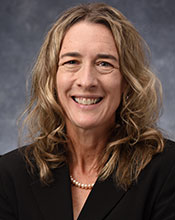
Department: Industrial Engineering
Email: rmclark@pitt.edu
Phone: 412-648-5359
Office: B12 Benedum Hall
Engineering Education Focus: Dr. Clark conducts research on both externally and internally-funded education-related projects with faculty interested in enhancing and assessing instructional practices within their classrooms. Renee conducts both quantitative and qualitative assessment and evaluation and focuses on pedagogies for active learning, learner-centered instruction, and engineering professional development, including reflection and metacognition, simple active learning to drive interactivity and application, flipped classrooms, adaptive learning, design thinking, and game-based instruction. Another current research area for Dr. Clark is promoting the propagation of active learning in the Swanson School via a 2018 award from the Provost’s Office, in which she coaches and mentors faculty who have an interest in implementing or enhancing active learning in their classrooms, often for the first time. She is also a newly-appointed associate editor for Advances in Engineering Education.
Recent Engineering Education Papers:
- Jeffrey, D. & Clark, R. (2019). Supplementing Western Perspectives of Learner-Centered Instruction with a Daoist Approach Towards Authentic Power Sharing in the Classroom. International J. of Contemporary Education, 2(1), 9-16.
- Clark, R., & Dickerson, S. Assessing the Impact of Reflective Activities in Digital and Analog Electronics Courses. Accepted for publication in IEEE Transactions on Education, November 2018, DOI 10.1109/TE.2018.2885720.
- Clark, R., & Dickerson, S. (2018). A Case Study of Post-Workshop Use of Simple Active Learning in an Introductory Computing Sequence. IEEE Transactions on Education, 61(3), 167-176.
Active Grants and Recent Achievement Awards:
- Co-Principal Investigator: NSF Research Initiation: Systematic Use of Simulation in the Electrical and Computer Engineering Classroom to Drive Reflection and Metacognition; 9/1/2018-8/31/2020; $200,000 (Award # 1830735)
- Project Director: University of Pittsburgh Office of Provost 2018 Innovation in Education Award Propagation of Active Learning within the Swanson School of Engineering; 5/1/2018-4/30/2019; $15,000
William Clark
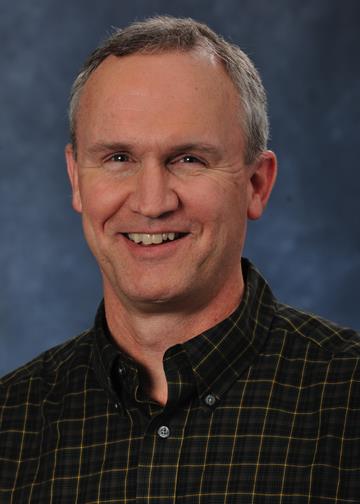
Department: Mechanical and Materials Science
Email: wclark@pitt.edu
Phone: 412-624-9794
Office: 218H Benedum Hall
Ahmed Dallal
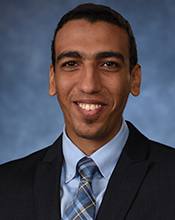
Department: Electrical and Computer Engineering
Email: ahd12@pitt.edu
Phone: 412-383-4423
Office: 1203 Benedum Hall
Engineering Education Focus: Dr. Dallal primarily focus on education development and innovation. In particular, the use of active learning in electrical engineering and design based learning.
Recent Engineering Education Papers:
- A. Dallal, and R. Clarck, Progression of the Use of Active Learning in Electrical Engineering Courses, 2019 American Society for Engineering Education. ASEE Annual Conference Proceedings, 2019.
Active Grants and Recent Achievement Awards:
- Outstanding Mentor Mentee Award; PITT STRIVE Program
Samuel Dickerson
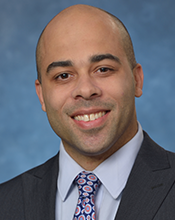
Department: Electrical and Computer Engineering
Email: dickerson@pitt.edu
Phone: 412-624-22163
Office: 1206 Benedum Hall
Engineering Education Focus: Current focus is on the use of computer-aided simulation tools to improve student understanding of electrical and computer engineering topics. Most recent work is the development and study of a novel method for promoting reflective and metacognitive thinking in engineering students. Other topics of interest include studying the impact of simple-active learning, propagating active-learning among faculty, the intersection of entrepreneurship and engineering education and Internet-of-Things education.
Recent Engineering Education Papers:
- Dickerson, S.J., & Clark, R.M. (2018). A classroom-based simulation-centric approach to microelectronics education. COMPUTER APPLICATIONS IN ENGINEERING EDUCATION, 26(4), 768-781.Wiley. doi: 10.1002/cae.21918.
- Clark, R.M., & Dickerson, S.J. (2018). Assessing the Impact of Reflective Activities in Digital and Analog Electronics Courses. IEEE Transactions on Education. doi: 10.1109/TE.2018.2885720.
- Clark, R.M., & Dickerson, S.J. (2018). A Case Study of Post-Workshop Use of Simple Active Learning in an Introductory Computing Sequence. IEEE TRANSACTIONS ON EDUCATION, 61(3), 167-176.Institute of Electrical and Electronics Engineers. doi: 10.1109/TE.2018.2808274.
Active Grants and Recent Achievement Awards:
- https://www.engineering.pitt.edu/News/2018/Dickerson-Clark-Metacognition/
- https://www.chronicle.pitt.edu/story/2016-innovation-education-awards
- https://www.engineering.pitt.edu/News/2018/Innovation-in-Education/
- https://www.engineering.pitt.edu/News/2016/Samuel-Dickerson-NAE-FOEE/
- https://theincline.com/2018/08/07/whos-next-technology-meet-22-people-building-the-future-in-pittsburgh/
April Dukes
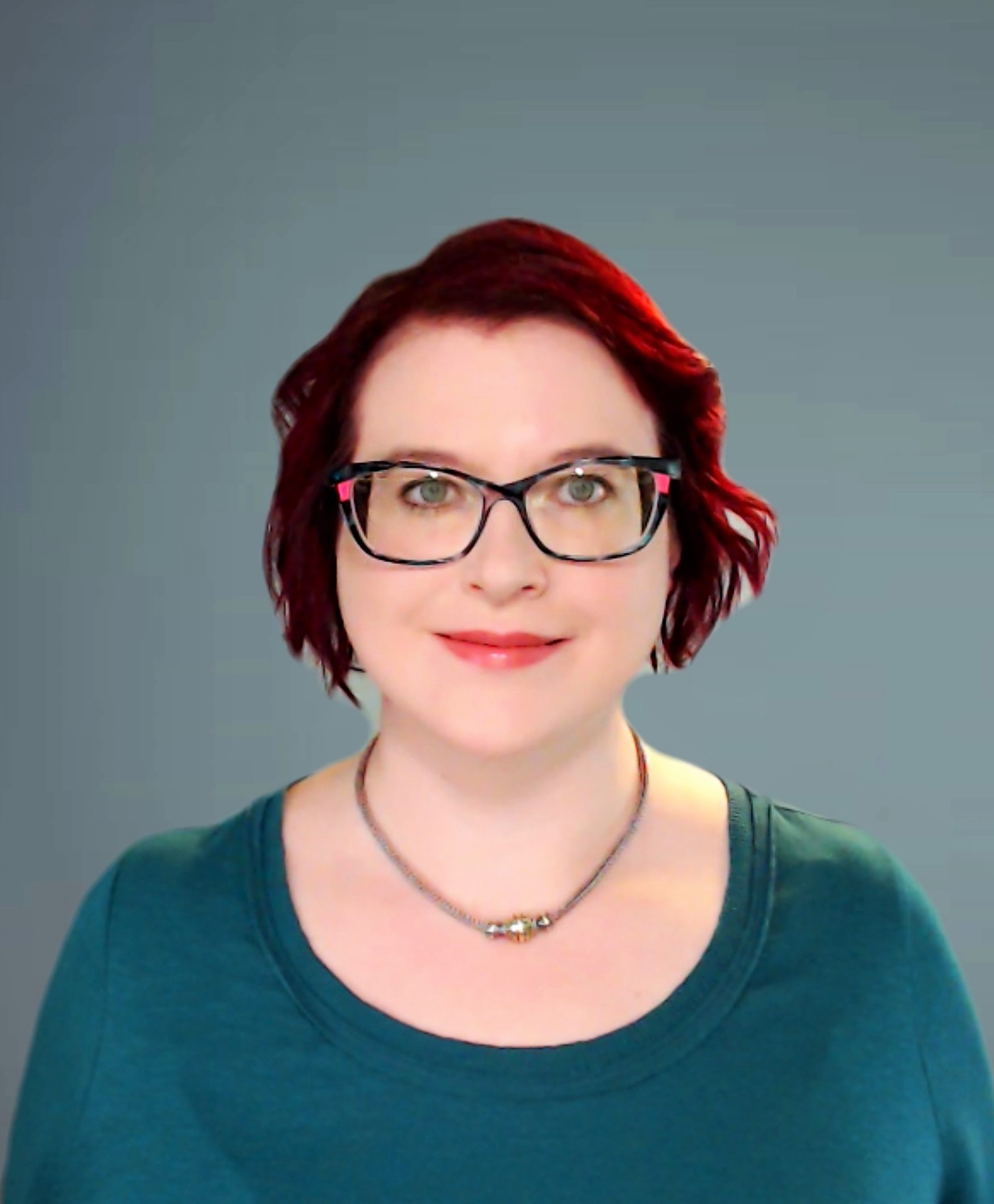
Department: Engineering Education Research Center
Email: aprila@pitt.edu
Phone: 412-383-6014
Office: B12 Benedum Hall
Engineering Education Focus:
Dr. April Dukes is currently the Faculty and Future Faculty Program Director for the Engineering Educational Research Center (EERC) and the Institutional Co-leader for Pitt-CIRTL (Center for the Integration of Research, Teaching, and Learning) at the University of Pittsburgh. Her current research and teaching efforts engage graduate students, postdocs, and faculty to inform and support systemic change toward excellence and inclusivity in higher education. April serves as co-PI of the NSF-funded Division Of Undergraduate Education (DUE) project, Increasing Implementation of Proven Inclusivity Practices in Undergraduate Engineering Education, and she is a collaborator of the NSF national educational research initiative, the Aspire Alliance. Throughout her professional career, April has mentored trainees at various stages inclusive and equitable practices, career development, educational research, and course design.
Recent Engineering Education Papers:
- Vaden J, Bilec M, Dukes A, Nave A, Landis A, & Parrish K. (2023). Inclusive Engineering Classrooms and Learning Communities: Reflections and Lessons Learned from Three Partner Universities in Year 2. Paper presented at 2023 ASEE Annual Conference & Exposition, Baltimore, MD.
- Dukes AA, Gillian-Daniel DL, Greenler RA, Parent R, Bridgen S, Esters LT, & El-Sayed J. (2023) Chapter 8: An Inclusive Professional Framework for Faculty: Implementing Inclusive and Holistic Professional Development that Transcends Multiple Faculty Roles, In Handbook of STEM Faculty Development (pp 83-94). Information Age Publishing.
- Knezz SN, Gillian-Daniel DL, Calderon CI, Dukes AA, Greenler R, & Macias L. (2023) Chapter 13: Improving Gender Diversity in STEM Through an Inclusive Professional Framework, In Leading Change in Gender and Diversity in Higher Education From Margins to Mainstream (pp 280-299). Routledge.
- Vaden JM, Dukes AA, Parrish K, Nave AH, Landis A, & Bilec MM (2022, June 26-29). Developing and Sustaining Inclusive Engineering Learning Communities and Classrooms [NSF Grantees poster presentation]. ASEE 2022 Annual Conference: Excellence Through Diversity, Minneapolis, MN, United States.
- Vaden JM, Dukes AA, Parrish K, Nave AH, Landis A & Bilec MM (2022, June 1-3). Improving and Sustaining Inclusive Classroom Environments in Engineering [Poster presentation]. 2022 IUSE Summit: Propelling Change: Moving from Strategy Toward Effective & Equitable Undergraduate STEM Education, Washington, DC, United States.
- Rodriguez Alonso J, Keith JA, & Dukes, AA (2022) A diversity index to assess college engineering team performance. In: ASEE North Central Section Annual Conference, 18 March 2022 - 19 March 2022, Pittsburgh, PA.
- Gillian-Daniel DL, Greenler RM, Bridgen ST, Dukes AA, and Hill LB. (2021) Inclusion in the Classroom, Lab, and Beyond: Transferable Skills via an Inclusive Professional Framework for Faculty. Change: The Magazine of Higher Learning, 53:5, 48-55
- Jimenez J, Dukes AA, Fedorchak MV. (2021) Integrating Public Health Topics in Drug Delivery System Education. ASEE Virtual Annual Conference, 2021.
- Pliner EM, Dukes AA, Beschorner KE, Mahboobin A (2020) Effects of student interests on engagement and performance in biomechanics. J. Appl. Biomech. 36(5):360-367.
- Clark RM, Besterfield-Sacre M, Dukes A. (2020) Supportive Classroom Assessment for Remote Instruction. Advances in Engineering Education. 8(4)
- Dallal A, Dukes A, Clark RM. (2020), Student Performance in Partially Flipped ECE Laboratory Classes Paper. Presented at 2020 ASEE Virtual Annual Conference Content Access, Virtual Online.
- Dukes AA, Sowko, LA, Gartner M, Barber BJ, Clark, RM. (2019) Assessing the Impact of Embedding Nursing Students in Bioengineering Senior Design Projects: Student Perceptions of Interprofessional Team Benefits and Challenges. ASEE Annual Conference & Exposition, 2019.
- Avery L, Dukes A, and Warner M. (2019) An intervention to increase accuracy and understanding in undergraduate micropipette use. Presented at: IMMUNOLOGY 2019™, Annual Meeting of The American Association of Immunologists, May 9 – 13, The American Association of Immunologists, Inc., San Diego, Abstract 61.9
Leanne Gilbertson
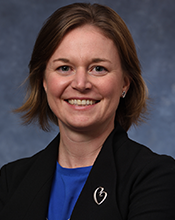
Department: Civil & Environmental Engineering
Email: lmg110@pitt.edu
Phone: 412-624-1683
Office: 202 Benedum Hall
Engineering Education Focus: In collaboration with the EERC, I am studying how the incorporation of design thinking engages students in learning about sustainable engineering and design. We are collecting data in a long-term study to probe how this pedagogical approach enhances student creativity, retainment of content, and application to their future engineering careers. Continued data collection will enable us to further look at learning outcomes across gender, socioeconomic, and disciplinary diversity.
Recent Engineering Education Papers:
- Clark, R.; Stabryla, L. M.; Gilbertson, L. M. “Use of Active Learning and the Design Thinking Process to Drive Creative Sustainable Design Solutions.” 2018 ASEE Annual Conference and Exposition, Salt Lake City, UT. https://peer.asee.org/31186.
Active Grants and Recent Achievement Awards:
- University of Pittsburgh Innovation in Education Awards, Teaching Sustainable Engineering Through Design Thinking. $15,000 (2017-2018)
- Mindlin Foundation, Teaching Sustainable Engineering Through Design Thinking. $10,000.00, 5/1/2017 – 4/30/2018
Robert Kerestes
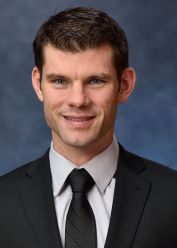
Department: Electrical and Computer Engineering
Email: rjk39@pitt.edu
Phone: 412-383-5251
Office: 1224 Benedum Hall
Engineering Education Focus: My focus is in improving methods for teaching electric power and electromagnetic engineering through the use of active learning and design based instruction.
Recent Engineering Education Papers:
- Cook, T., Lyle, J., Kerestes, R. "Work in Progress: Reinforcement of Engineering Education with Hands-on Learning of Technical Skills", 2018 ASEE Annual Conference & Exposition
- Kerestes, R., Qu, Z., Turgut, D., "Enhanced Workforce Development via the 2017 FEEDER Student Summer Program", 2018 ASEE Annual Conference & Exposition
Active Grants and Recent Achievement Awards:
- 2018 Office of the Provost Personalized Education Award - "Development and Implementation of a Real-Time Tutor Sourcing Application"
- 2019 John C. Mascaro Faculty Lectureship in Sustainability
- 2019 Office of the Provost Innovation in Education Award - "Integration of Computer Aided Design into Electrical Engineering Curriculum using COMSOL Multiphysics"
- 2019 Office of the Provost Open Educational Resource Grant - "Development of Open Educational Resources for Core Electrical Engineering Courses"
Arash Mahboobin
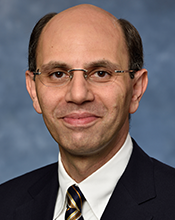
Department: Bioengineering
Email: mahboobin@pitt.edu
Phone: 412-624-9819
Office: 302 Benedum Hall
Engineering Education Focus: My research interests include computational and experimental human movement biomechanics, bio-signal processing, and engineering education. Specific areas of biomechanics and bio-signal processing research include developing muscle-actuated forward dynamic simulations of gait (normal and pathological), analysis and modeling of human postural control, and time-varying signals and systems. Engineering education research includes curriculum and laboratory development of biomechanics and bio-signal processing concepts.
Recent Engineering Education Papers:
- IEEE TRANSACTIONS ON EDUCATION, VOL. 61, NO. 2, MAY 2018; American Society for Engineering Education, 2018, 2017, 2016.
Active Grants and Recent Achievement Awards:
- Provost’s Personalized Education Grant Program, 2018 (under review)
Taryn Melkus Bayles
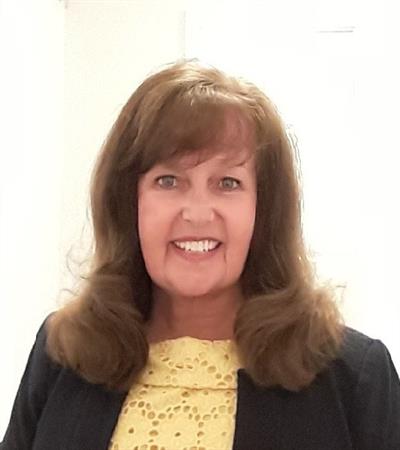
Department: Chemical & Petroleum Engineering
Email: tbayles@pitt.edu
Phone: 412-383-9970
Office: BEH 909
Irene Mena
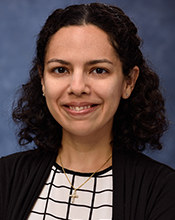
Department: Mechanical and Materials Science
Email: imena@pitt.edu
Phone: 412-648-2134
Office: 147 Benedum Hall
Engineering Education Focus: First-year engineering education; academic integrity in first-year engineering students
Recent Engineering Education Papers:
- Mena, I. B., & Sanchez, D. V. P (2017). Perceptions of Academic Integrity of Students in a First-Year Engineering Program. Paper presented at the American Society for Engineering Education Conference & Exposition, Columbus, OH.
- Mena, I. B., & Dale, A. T. (2017). Exploring Students’ Perceptions of Complex Problems and Stakeholders. Paper presented at the American Society for Engineering Education Conference & Exposition, Columbus, OH.
- Mena, I. B., & Clark, W. W. (2016). Designing a Big Machine: A Description and Assessment of a Mechanical Engineering Design Project. Paper presented at the American Society for Engineering Education Conference & Exposition, New Orleans, LA.
David Sanchez

Department: Civil & Environmental Engineering, Mascaro Center for Sustainable Innovation
Email: david.sanchez@pitt.edu
Phone: 412-624-9793
Office: 153 Benedum Hall
Engineering Education Focus: My engineering education research includes identifying and tracking Sustainability student outcomes, student personal and professional formation as it relates to well-being, habits and culture, Academic Integrity
Recent Engineering Education Papers:
- Greene, M., Nguyen, C., Sanchez,D.V.P., 2019, “Identifying Phenomena and Developing Sustainable Engineering Educational Modules that Integrate STEM Education Best Practices and Next Generation Science Standards for Middle School Science Teachers ASEE Annual Conference proceedings, June 2019
- Mena, I.B., Sanchez, D.V.P., Perceptions of Academic Integrity of Students in a First- Year Engineering Program American Society of Engineering Education Columbus OH June 2017. 1.
- Dickerson, S.J., Jacobs, S.P., Garcia A.M., Sanchez, David V.P., Joint Assessment and Evaluation of Senior Design Projects by Faculty and Industry, Frontiers In Education, October 2016.
Active Grants and Recent Achievement Awards:
- Constellation Energy Inventor Labs, Pitt Sustainability Faculty Award 2018, Pittsburgh Business Times Energy Leadership Award, SSOE Diversity Award, Pitt EXCEL best mentor award
Mike Sherwin
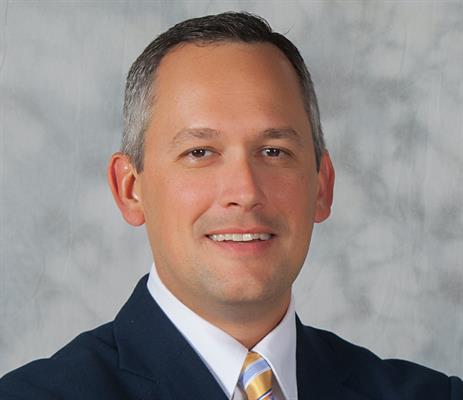
Department:Industrial Engineering
Email: mdsherwin@pitt.edu
Phone: 412-624-9843
Office: 1027 Benedum
Lisa Stabryla
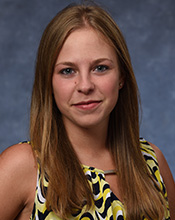
Department: Civil & Environmental Engineering
Email: lms162@pitt.edu
Phone: 412-651-6975
Office: 341 Benedum Hall
Engineering Education Focus: Lisa is a mid-career PhD student and aspiring faculty member. She has been an active member in Pitt-CIRTL since the summer of 2016 and recently earned the CIRTL Scholar Certificate through completion of a mentored teaching-as-research project (TAR) and dissemination of her findings at local and national conferences. Her project explored the use of active learning and the design thinking process in the engineering classroom to increase the practice of sustainability and creativity in students’ design solutions to a real-world sustainability challenge.
Recent Engineering Education Papers:
- Clark, R.; Stabryla, L.M.; Gilbertson, L.M. “Use of active learning and the design thinking process to drive creative sustainable engineering design solutions.” 2018, American Society for Engineering Education (ASEE) 125th Annual Conference & Exposition.
Active Grants and Recent Achievement Awards:
- Stabryla, L. and L. Gilbertson. “Teaching Sustainable Engineering Through Design Thinking.” The Mindlin Foundation. Grant No. MF17-US05. $10,000. December 2016.
- Stabryla, L. and L. Gilbertson. “Teaching Sustainable Engineering Through Design Thinking.” Innovation in Education Awards 2017 program. University of Pittsburgh. $15,000. March 2017
- ASEE Design in Engineering Education Division Best Paper Finalist 2018, Engineering Graduate Student Organization CEE TA Award 2017, National Defense Science and Engineering Graduate (NDSEG) Fellowship, 2017
Scott Streiner
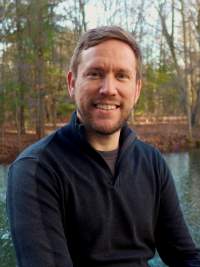
Department: Industrial Engineering
Email: scs147@pitt.edu
Phone: 704-264-6415
Office: 1035 Benedum Hall
Engineering Education Focus:
Design and Playful Assessment of Engineering Ethics Through Game-Based Interventions
Ethics education has been recognized as increasingly important to engineering over the past two decades, although disagreement exists concerning how ethics can and should be taught in the classroom. With the support from the National Science Foundation (NSF) Improving Undergraduate STEM Education (IUSE) program, a collaboration of investigators from the University of Connecticut, New Jersey Institute of Technology, University of Pittsburgh, and Rowan University are conducting a mixed-methods project investigating how game-based or playful learning with strongly situated components can influence first-year engineering students’ ethical knowledge, awareness, and decision making.
These games provide opportunities to educate young engineers on the importance of ethical decision making while in the field. This is a process called Gamification, which adds common video game elements into homework assignments, projects, and courses in order to peak students' interests and encourage them to engage with the activity. Mars: An Ethical Expedition, Cards Against Engineering Ethics, and Toxic Workplaces engage students using captivating stories, teamwork, scorekeeping, competition, and fun! More information can be found here:
Ethics Education Across Cultures
Ethics has long been recognized as crucial to responsible engineering, but the increasingly global environments of contemporary engineering present new challenges to effective engineering ethics training. With the support from the National Science Foundation (NSF) Ethical and Responsible Research (ER2) program, a collaboration of investigators from Virginia Tech, University of Pittsburgh, Delft University of Technology, and Shanghai Jiao Tong University are conducting a mixed-methods project examining the effects of culture and educational experiences on ethics training in undergraduate engineering students.
Engineering education has given insufficient attention to the global dimensions of ethics. Understanding how culture affects ethics could contribute to more inclusive engineering education. There are also implication for more effective responsible research education at the graduate level as the graduate population in STEM has become increasingly globalized and yet very limited studies are focused on designing culturally responsive ethics curriculum for graduate students with diverse backgrounds.
Recent Engineering Education Papers:
- Jackson, A., C. Bodnar, S. Streiner, K. Dahm, K. Mallouk, and Oestreich, B., “Application of Entrepreneurial Minded Learning Design Projects to Develop First-Year Engineering Students’ Entrepreneurial Mindset,” International Journal of Engineering Education, vol. 38, no. 1 (2022), pp. 237-252.
- Burkey, D., R. Cimino, M. Young, K. Dahm, and S. Streiner (2022). “It’s all Relative: Examining Student Ethical Decision Making in a Narrative Game-Based Ethical Intervention”, Frontiers in Education (FIE) Conference, October 2022.
- Clancy, R., Q. Zhu, S. Streiner, A. Gammon, and R. Thorpe (2022). “Exploring the Relations between Ethical Reasoning and Moral Intuitions”, Proceedings of the 2022 ASEE Annual Conference and Exposition, Minneapolis, MN, June 2022.
- Reed, J., S. Streiner, M. Young, R. Cimino, K. Dahm, and D. Burkey (2021). “Mapping the Landscape of First-Year Engineering Students’ Conceptualizations of Ethical Decision Making”, Proceedings of the 2021 ASEE Annual Conference and Exposition, virtual conference, July 2021.
Active Grants and Recent Achievement Awards:
- Co-Principal Investigator: NSF Ethical and Responsible Research (ER2): Responsible Engineering Across Cultures: Investigating the Effects of Culture and Education on Ethical Reasoning and Dispositions of Engineering Students; 10/1/2021-10/31/2026; $198,562 (Award # 2202691)
- Co-Principal Investigator: E-ETHIC2S: Engineering Ethics Through High-Impact Collaborative/Competitive Scenarios ; 3/15/2020-2/29/2024; $182,214 (Award # 2211320)
